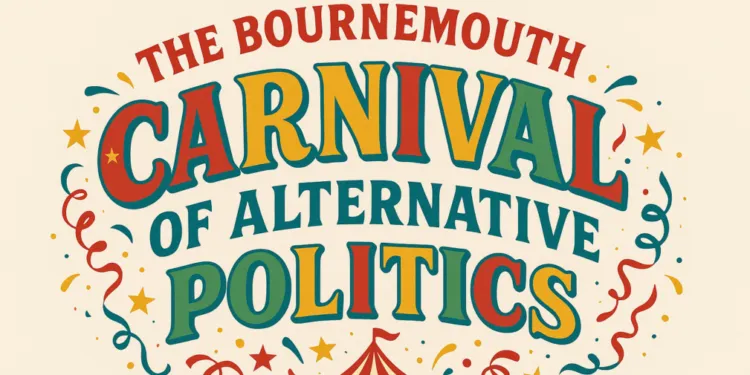Table of Contents
As I keep trying to drive home: Always assume that “fact-checkers” are trying to bullshit you. Don’t be fooled by the name: “Fact-checkers” have precious little to do with actual facts. What they really are is narrative-confirming devices. Whatever the Establishment narrative happens to be, “facts” are cherry-picked or just plain made up, and their targets are straw-manned and smeared.
Case in point: Joe Rogan.
The Establishment narrative is that Joe Rogan is “dangerous”, “misinformation” and a literal threat to peoples’ lives. The reality is that Rogan is an engaging host, who gets some things wrong, sometimes bullshits, but is relentlessly committed to actually talking to people with a staggering spectrum of views and opinions. Which puts him 1,000 miles ahead of any bootlicking, biased cretin on the late-night “comedy” (so-called) circuit.
The only danger Rogan presents is to the Boomer Establishment. With an audience bigger than Booomer Ted Turner’s CNN, it’s little wonder that Rogan has a cavalcade of ageing Boomer musicians wetting their Depends in fear. The Boomers, having ruled the roost since the 1970s, are suddenly even more terrified of those darn kids than their crew-cut parents.
The BBC is Boomer Britain Establishment par excellence. Naturally, it has tried to “fact-check” Rogan — and made a complete goose of itself.
The world’s largest news broadcaster has posted an erroneous and misleading “fact check” of Joe Rogan’s Spotify podcast, a show that has become a lightning rod for media criticism after featuring wide-ranging conversations with people across the political spectrum, including some who hold minority views about COVID-19. A fact-check from the BBC’s “Reality Check team” purports to refute four claims made on “The Joe Rogan Experience” — but Rogan did not make all of the claims examined, and the BBC confirms a statement made by a guest on the show, but persists in calling it “misleading.”
This is the standard modus operandi of “fact-checkers”: straw-man the target, and lie about the facts.
For instance, the BBC claimed that Rogan said, “This is not a vaccine, this is essentially a gene therapy”. Note the quotes: in journalism, anything presented in quote marks is supposed to be verbatim what a person said. But Rogan never said those exact words: the BBC is lying.
What Rogan actually said is debatable, sure. In one sense (“it’s not really a vaccine in the traditional sense”), Rogan is correct: this is an entirely new vaccine technology. What he also said (“This is really gene therapy. It’s a different thing. It’s tricking your body into producing spike protein and making these antibodies for COVID”) is only half-right: it does indeed work as he says, but “gene therapy” is mistaken terminology.
But when the BBC thunders that, “It doesn’t interact with your own genetic material at all”, it’s straw-manning. Rogan never said that.
The BBC’s other “fact-check” — that ivermectin can cure covid — is not something that Rogan said, either. Rather, as the BBC quietly acknowledges, it was a guest who said it. Besides, as even the BBC admits, the evidence on ivermectin is, according to gold standard Cochrane analysis, “uncertain”.
So, Rogan’s guest was guilty of over-egging the pudding but not definitely wrong, so far as we yet know.
The BBC analyzes the notion that “for young people, the health risks from the vaccine are greater than from Covid” — but Joe Rogan made no such claim. Rogan actually said, “I don’t think it’s true there’s an increased risk of myocarditis from people catching COVID-19 that are young, versus the risk from the vaccine.” (Emphasis added.)
In a hilarious pratfall, the study that the BBC cited, in fact, backs Rogan’s (actual) claim.
The findings show the risks of myocarditis associated with the two mRNA vaccines to be slightly higher in people aged under 40 and particularly after the second Moderna vaccine. For these people, the study estimated that there were an extra 10 myocarditis events per million people following a positive SARS-CoV-2 test and an extra 15 per million following a second dose of mRNA-1273 (Moderna) vaccine.
But the BBC’s nuclear moment is, of course, the Robert Malone episode.
The BBC notes, “One of Mr Rogan’s most controversial guests has been the virologist Robert Malone […] Among the misleading claims made in this podcast episode was one suggesting people who are vaccinated after having Covid-19 are at greater risk of adverse side effects,” the BBC fact-check said.
The BBC then verifies the accuracy of that claim. “In one UK study, researchers found that vaccine after effects were more common in those who already had Covid,” the BBC notes, although it says the study “only looked at mild after effects, such as fatigue, chills and headaches.” The BBC offers no additional refutation.
The Daily Wire
I can only emphasise again: never trust a fact-checker. Not even me: check the above for yourself, I encourage you.









